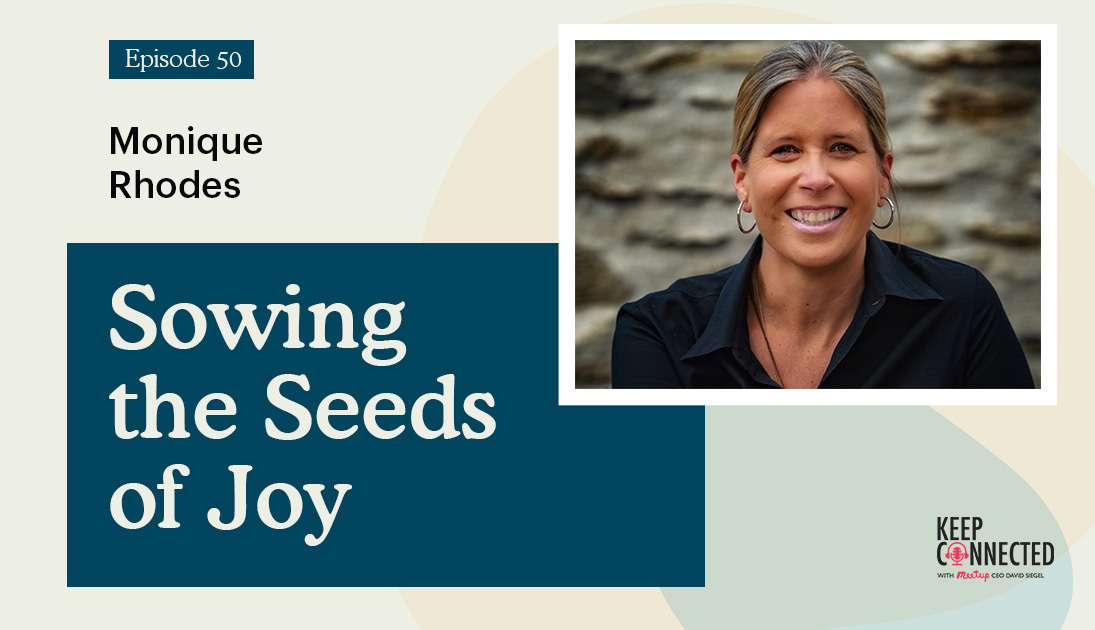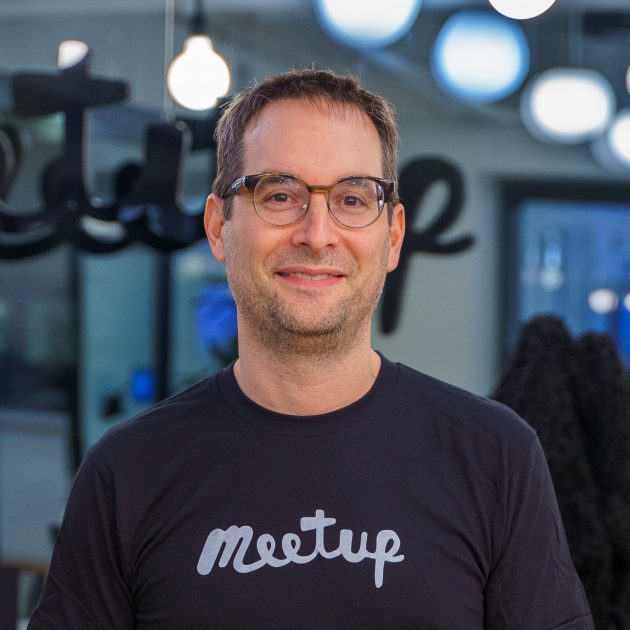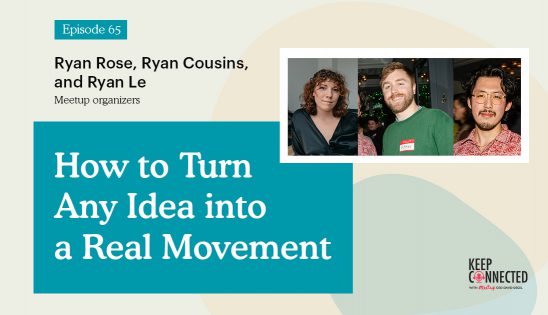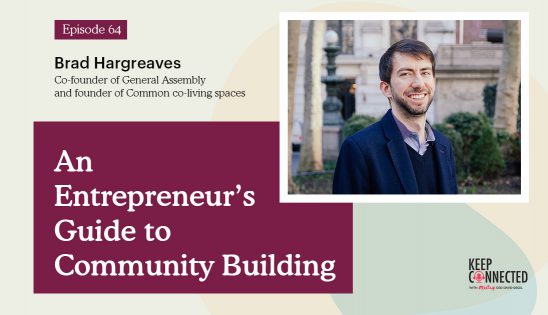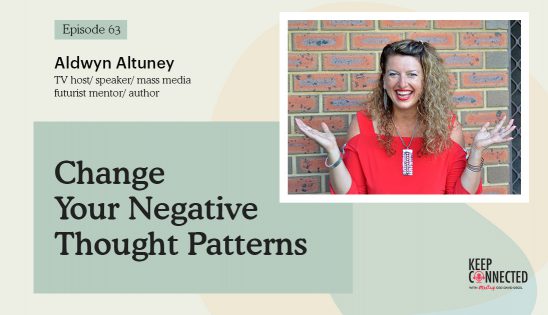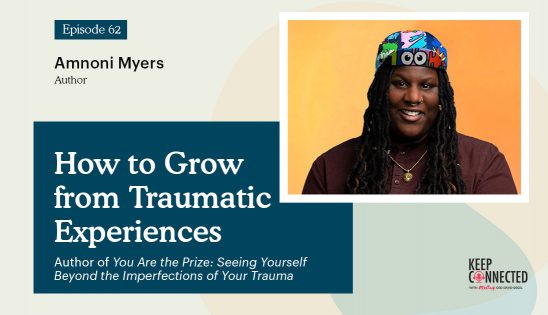Monique Rhodes was adopted into a difficult situation in New Zealand. By her early teens she was quite depressed, and at 19 years old hit rock bottom when she attempted to take her own life. Since then, she’s been on a journey of resilience and self-discovery that has utterly transformed her experience as a human being on Earth. From a four-year motorcycle trip through India, to studying with the Dalai Lama, and moving to Costa Rica without a single prior connection, Monique’s path continues to unfold in a way that values firsthand experience, novelty, intentionality, and audacity. She and David sit down to discuss the revolutionary role of meditation in Monique’s life, friendship and spirituality crossovers, how world travel can be a practice of gratitude, and much more.
Show Notes
We are here with Monique Rhodes. You’re going to read a special episode from someone who talks about the power of energy, who learned directly from the Dalai Lama and has taught and continues to teach thousands of people about mindfulness and happiness. I’m excited for every person here to have the opportunity to read her teachings. Happy reading.
—
Welcome, Monique Rhodes.
David, I’m so happy to be here. Thank you for having me.
I have such incredible admiration for you and how you’ve overcome the tough lot that you started off with in life. You’ve helped thousands of people live happier and more mindful lives. I want to start off with your personal journey. How did you become the person you were in your early years? Let’s start with that.
It is an amazing thing sometimes when we look back at our lives, particularly if we’ve struggled. We can often see that, at the time, the struggle can feel insurmountable, but when we do find our way through it, often that struggle ends up becoming the gift that we bring into the world. I grew up in New Zealand, which is so amazing. It is such an amazing country. My childhood was very difficult and there’s no question about that.
I was adopted into a very difficult situation. What I see now I look back is that probably by my early teenage years, I was quite depressed. If you’re a ten-year-old and you’re listening endlessly to Leonard Cohen, it’s usually a sign that things aren’t going so well. My emotions were out of control. I felt scared a lot of the time. I felt a lot of despair and at the same time, I was functioning. Most people wouldn’t probably have realized that I was going through such a difficult time.
Did you hide it even from your parents and friends?
Yes. That was part of the strategy. There’s a need to hide it because you’re so desperate to try and find a way through that if you don’t hide it, perhaps you’ll be rejected. The last thing you can be is rejected because you need some community to help hold you in place when you’re struggling so much.
Was there a time in your high school or teen years that you stopped hiding it? Did you keep it bottled up?
I kept it bottled up also from myself on some levels because if you don’t hide it from yourself, then everything will fall apart. I didn’t feel that I had the luxury for everything to fall apart, but when I was 17, I left home and these next few years were quite difficult. I met my birth mother and a number of things happened that were quite destabilizing.
At the age of nineteen, I hit a crossroads. That crossroads was I ended up in the hospital, having tried to take my own life. I remember sitting in the hospital bed and asking myself a question that has become the question of my life. Why was it that I was struggling so much? Did other people struggle in a similar way or was it me? Was there something wrong with me? Was it possible to move this unhappiness that I was feeling?
I decided that I was going to give it everything I had to try and see if I could shift this. This became the journey that I went on where I traveled externally and internally. I traveled all over the world, studied with different teachers, and looked at different ways that people were living. I did a lot of therapy. I also did physical therapies to try and release stuff from my body.
What I discovered was that it is possible to shift your happiness levels. Not only that, you can be taught how to do it. The best news is that everybody doesn’t have to go through the massive journey that I went through to figure it out because this is what I now teach. I have extraordinary results with my students and a short amount of time because there are certain things that we can do to move our happiness levels quite quickly.
Most people, I imagine, when they hit rock bottom as you did or when you were in the hospital, don’t have that resilience to say, “I’m now going to give it everything I can.” How did you get to that point? Did you wake up in the hospital and say, “I’m now going to give it everything I can?” Was it a process to get there? What differentiated how you were able to get there when most people can’t for obvious reasons?
I often think about it as this moment of do or die. Either I do something, anything, find a way through, or I am going to die because I can’t continue to live in this particular way. Sometimes we think we’ve hit rock bottom, but when you hit rock bottom, there’s a desperation that can also be deeply motivating. It’s that creativity that comes out when there’s no alternative.
When you hit rock bottom, there’s a desperation that can also be deeply motivating. It’s that creativity that comes out when there’s no alternative.
It was a process. It wasn’t like I came out of the hospital and I was like, “I’m going to figure this out.” There was a realization. It took me some years to almost build some momentum around that realization to figure out, “How can I explore this, and what are the paths that I’m going to take?” I went straight away into therapy at that time. I found therapy to be amazing and a big proponent of therapy, but I didn’t find that it gave me the answers in a way that maybe I feel now is more possible to shift.
With therapy, I often think of it like a garden. When we hit rock bottom, all we can see are weeds. There’s a deep vulnerability when we go through that garden and start pulling out the weeds because what’s there? Nothing. There’s an important practice that I teach, which is called Sowing the Seeds of Joy so that we build our resilience by starting to see things differently from a more positive perspective. We build our strength up. When the time comes for us to pull the weeds out, we have the strength to be able to do it.
That’s beautiful. Pulling the negatives out is one thing, but building the positives is something different. It’s one thing to remove the blockers, which is what you’re referring to and to understand how to overcome the obstacles. It’s another thing to build positive momentum. How important was traveling for you and/or community, one or the other, or both as part of that personal journey, personal therapy, in the broader sense of therapy, not practitioner therapy for you?
Both were important. The first thing that was important for me was travel. It enabled me to put myself in all sorts of situations and see how I cope and manage. This was once I was at a place of real stability. What comes up for me? If you put me in the North of India and I don’t see another Westerner or English-speaking person for two weeks, how do I feel? How does that destabilize me?
If I walk out into the street and a bunch of school kids look and point at me and laugh, how do I deal with that inside of myself? Does that trigger me? Is that difficult? I rode a motorcycle through India for four years as a woman in a country where people were telling me it was dangerous to be there. It was good to see how I look after myself. What comes up repeatedly for me that I need to look at and heal in different environments?
Did it give you “confidence,” or did it make you feel like, “I am someone who’s special?” There’s a difference between the two. One of them is, “I have the ability to handle anything because I could motorcycle through India as a woman and no one else could do it. If I could do that, I could do anything.” That’s one thing. Another thing is saying, “I felt like I was put in this world with a purpose.” What did it do for you very specifically?
It gave me confidence. It taught me to be able to see that fundamentally I could cope in almost any situation. On a number of occasions, I took myself up into the Himalayas and did retreat for two weeks. What retreat means for me is a silent retreat with no distractions. Nothing for two weeks. To be able to manage that is a big thing.
It doesn’t make me feel special at all. What makes me frustrated is because so much of what I’ve discovered in my life are things that we are not taught. If I can give other people some of the skillsets, they can do anything they want as well. There’s a part of me that has the audacity to go for it and there’s a courage that I probably came into the world with that I’ve focused on building.
I’ve just moved to Costa Rica. I don’t know anybody here. Most people would go, “You’re crazy,” but everyone in my life goes, “It’s awesome that you do that.” I’m hosting two retreats here. A number of my students have never left the United States. By being around me, they’ve got the courage to take the chance to come and do something like this. There’s nothing special about me at all. It’s just that often we are not shown that we can do these things, but we can.
I love the statement that you felt frustrated. It speaks to your energy of wanting to improve and help others so that they don’t have to necessarily go through the things that you went through. I’m sure you would probably say, “Everyone has their journey.” Sometimes people need to go through some of the things “similar,” but it’s never the same as the things you went through. That’s also part of their journey as well.
Let’s talk about community during that time. I would assume you almost didn’t have much of a community because you’re going from place to place. In other ways, you had incredibly rich communities during that time. Share with us a little bit about how you build community when you’re by yourself in some of these places and jungles, etc. How did you do it? What did you do? What advice would you even give to people that were attempting to do something similar?
Unlike a lot of people, I’m not an introvert. Even though I wish to be, I’m not. I’m an extrovert. I come out as an extrovert all over the place. Every test I do, to my great disappointment. I need a lot of alone time, but I need community. When you’re traveling like this, community becomes fundamental, but it becomes fundamental and an important way to start with. Particularly, in India, as I was traveling. At the time, there was a lot of concern about Western women traveling on their own and some pretty full-on things that happened.
The community became my safety net. The moment I arrived somewhere, I would make myself known. I would go and usually stay in small places or towns, and I would make myself known to the locals because people would take care of me. There’s a little place in the South of India that is my favorite place. If it wasn’t so far from the States, where most of my work is done, I would be living there. It’s a little place called Varkala, some of you may know it, it’s in Kerala. I would go back there repeatedly at times because I had such a strong community of locals and sometimes the tourists that came through.
I took a friend there a couple of years ago. We went back to the states and she said to everyone, “Monique was like the mayor of that frigging town.” It was so funny. When you’re traveling, you have to understand that community needs to be within the local community as well as with people who have shared experiences with you. One of the most important things is you have to be where people are. You’ve got to figure out where are the people that I need to be around gathering. You’ve got to go and be there.
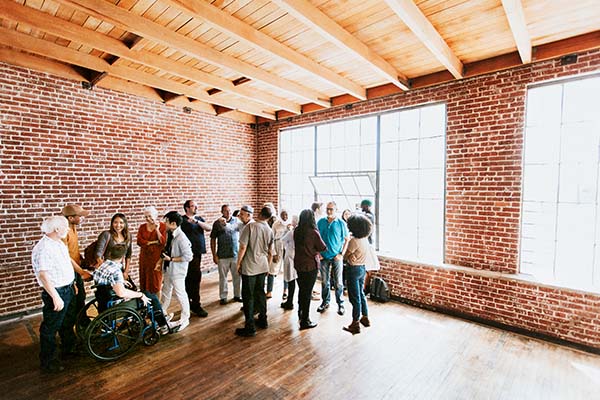
Where were the people there? What were they doing?
There were a couple of things in Varkala. As an example, everyone went down to the beach at sunset and watched the sunset as they do here, where I live in Costa Rica. It doesn’t matter how you’re feeling. Get your butt down to that sunset. It doesn’t matter if you’re on your own. Get down to the sunset. As soon as you’ve met one person, you can go up and say, “Hey,” and then you meet another and another.
Go to the restaurants where everyone’s going. There was a wonderful restaurant that I spent a lot of time in. It didn’t matter if I was there by myself or not. It meant that when I always went, I had friends there. Another thing to do that’s powerful and something I’m very conscious of when I’m traveling is if you have found your community, bring other people into it. In Varkala, I would go out for dinner most nights. I would usually pull together at least about fifteen people every night to come and share a dinner.
You are an extrovert, clearly.
David, if I saw someone eating by themselves, I would give them the opportunity to come and be with us. There’s nothing more lonely than being somewhere on your own and there’s a whole group of people and you feel on the outside, so bring people in. You never know who you are going to meet. Now that I’m in Costa Rica, I’m finding out where people gather and how people gather. “People surf and do yoga classes.” I’ve started thinking, “How am I going to get with the people I want?”
I teach meditation so I’m probably going to start a meditation night every two weeks at my home, where I bring people to me. I’m going to start a book club. I said to one of my friends the other day, “Is there a book club here?” She said, “No. I was thinking about starting one.” I said, “Great. I’m going to provide the venue. You’re going to get the people and run the book club.”
What I love about that is you didn’t say, “I’ll run the book club too and I’ll do this,” instead, you’re finding people to delegate things to. Please hear this, Meetup organizers. Too often, you feel like you need to do everything yourself, but what you’re doing is you’re saying, “I want to be a leader, but I don’t need to be the leader of the book club as well,” and that’s beautiful. I love that. Thank you for sharing.
Think about sport as well. There are tennis courts here. “I got ahold of the woman who coaches tennis.” “Great. Give me lessons and hook me up with a group of people who want to play tennis.” They’re building a pickleball court here, which is so American, but whatever. It’s around the road from where I live. I go back to the states in a few weeks. I’ve got my pickleball racket ordered. I never played pickleball before, but I’m going to play to be in amongst it. Have you ever played Catan?
Do you mean the game Settlers of Catan?
Yes.
Of course. My family plays it all the time.
I got taught it some years ago and took it home to my family in New Zealand. It is embarrassing the way that we treat each other as we play Catan. This is my natural family, my sisters. It’s ruthless the way we talk to each other is nothing short of abysmal and we love it. My brother-in-law and I almost kill each other when we play Catan.
You got to go for the bricks, not the sheep. That’s part of my strategy. Unless you have a 2-for-1 sheep, that’s a different story.
It depends. Once you get into the extensions, there’s a whole other thing going down. One of the things I’m going to put on the social group for my little town here is, “Does anyone play Catan?” If someone plays Catan and they don’t have a Catan board, I’m going to bring a Catan board down here. You need to find, “What do I have in common with people,” shamelessly. Stick yourself in amongst people to build your community.
There’s also a trick and this is what I always tell my students, many of them who are terribly lonely at the moment in this world we are living in. You have to do something where you are showing up consistently and the other people are as well. That’s the key. Something ideally that’s happening on a weekly basis, where those friendships evolve slowly and solidly. That’s the trick to it. You can’t think, “I met this person and they’re awesome.” You’re not to develop a friendship unless you do it consistently.
You’re not going to develop a friendship unless you’re doing it with consistency.
The concept I like to talk about there is it becomes a ritual. If you think about organized religion, one of the reasons for success in churches is on Sundays, people go to church. People go to go to temple on Saturdays or on Fridays. That weekly ritual creates this very deep community as opposed to 3 or 4 times a year we get together. It’s an incredibly different experience when you’re able to do that.
By the way, you’re also talking about life when you’re playing board games. You might have tea when you’re doing that. When you have the book club, you’re not talking about the book. You’re also talking about your life in relation to the book. You’re connecting through that as well. Almost each of these experiences is not in and of themselves, but they’re triggers. They’re enjoyable props of ways that you could then connect with other people and in ways that make it much more comfortable to be able to do so than sitting around having coffee while you have a book in front of you that makes that connection so much deeper.
There’s the purpose. There’s the shared goal where you are working together, even if it’s like, “I’m trying to improve my tennis game,” or, “I’m trying to improve Catan game,” that becomes the focus and everything can fall much more naturally and easily on the outside. There’s not so much pressure to show up with, “I have to create this connection,” and it doesn’t work. Having a shared goal outside of that is always a powerful thing.
You went from practitioner to teacher. Did it happen slowly and suddenly? Did you wake up one day and said, “I need to teach others meditation. Not just meditate myself. I need to play board games with others to teach other people board games and not play board games myself?” How did it happen? Were you always a teacher when you were 10, 11, or 12 years old? Where did that come from?
When I was a kid, I was a musician. In my early twenties, I was a violinist and I played guitar, I was asked to go and teach violin and guitar at a school and I was so bad at it. It was torture. I don’t even know how many months I did it, but the minute that I could get out of doing it, I got out of doing it. One of my sisters from my birth father is a teacher. I always looked at her and went, “I admire it and that is not my jam at all.”
I’ve been studying meditation for many years and I was in Varkala, in this little town. I was doing a music project for the Dalai Lama at the time. I was there for months on end, and it was amazing. There’s a lot of yoga that’s done there. There’s a yoga school that’s a couple of hours away and lots of people go and do yoga teacher training and then come to Varkala.
These two girls came to me one day and it was funny because my whole practice wasn’t completely secretive, but I never talked about it. These two girls came to me and they said, “We know that you practice meditation on that rooftop every morning and we want you to teach us.” I looked at them and said, “Absolutely not. It’s not my thing. I don’t do that. I’m not going to do it and I have no idea how to do it.”
They came back three days in a row and on the third day, I felt guilty and I thought, “I wonder if it was a bad thing that I refused to teach them this.” I very reluctantly said to them, “Come up at 8:00 AM tomorrow and I’ll teach you.” They came up at 8:00 AM and I swear I taught the absolute worst meditation class that was ever taught and I didn’t care. I didn’t know what I was doing and I didn’t care, and I wanted them to leave me in peace to do my meditation.
The next morning at 8:00 AM, they showed up with two of their friends and I was furious. I was like, “What are you doing?” They said, “Our friends wanted to learn as well.” I thought that they would be put off by how badly I taught that class. In my frustration, I did it differently. Sitting with them, I opened up about why meditation had been my superpower. I then taught them from that place. Before I knew it, there were 50 people on that rooftop every morning and I was teaching meditation.
I loved it. It was the craziest thing. It was almost like I had learned so much that I’d never spoken about. There was this well of understanding in me that I’d never expressed. I loved teaching people and I was so afraid. My biggest fear was someone was going to ask me a question I won’t be able to answer, but it never happened, which was amazing. Either I knew more than I realized or no one asked me the tricky questions.
It’s definitely the first, not the second.
It was all good. I started to see that people were having big breakthroughs in themselves. Probably, the most poignant moment was there was a woman in her 60s who was Italian. I taught her for over two weeks. At the end of two weeks, she came to me and she was crying. She said, “I’m leaving tomorrow. I stayed here for two extra weeks because I wanted to learn meditation from you. I was brought up very strictly Catholic in Italy and in such a way that I would’ve believed that meditation was the work of the devil. These two weeks have changed my life.”
I remember at that moment realizing that maybe there was something more to this teaching meditation for me. Maybe there was something I needed to look at a little bit more deeply because we love doing things that bring us joy and seeing her and other people’s transformation made me so happy. That was how it all began.
That is incredibly motivating how organic it all occurred. I’m not going to say effortless because you put so much effort for many years into becoming the person that you did to be able to have that natural superpower in teaching meditation and happiness. This is such an unfair question to ask you, so I apologize in advance for asking it.
I can’t wait now to know what you would think an unfair question was.
You can’t teach principles around meditation and happiness in 5, 10, or 15 minutes. It’s impossible. It does a disservice to everything you teach people and retreats and in 1-on-1s over weeks and months at a time, but to get a taste for halves for me, my curiosity, and our readers, are there certain principles that you tend to emphasize? Are there certain modalities or ways of teaching meditation and/or happiness that will be helpful for us to at least get a couple of tastes so that we could then read your books, listen to your podcast, join your retreats, and everything else to delve in and learn more? I would love to know the answer to this unfair question.
That’s a fair question because often we look at things like this and think it’s impossible and that I wouldn’t be able to do this. I often think to myself, “If I wasn’t me, I would be jealous of myself.” That’s how good I feel every day when I live my life and feel well. It doesn’t mean that difficulties don’t arise. They do. I created a course, which is my favorite course that I teach, called The Happiness Baseline. I take people through it. We do eight weeks of looking at shifting small habits. It’s nothing overwhelming.
What’s an example?
We have eight areas. The first one is we look at gratitude practices, which might seem obvious, but the way that I do the gratitude practices is slightly different. We amp up our gratitude practices. We look at self-compassion, which is something that most people would go, “I don’t even know what that means.” What it means is having a loving and compassionate relationship with ourselves as a habit is important.
We look at the mind and our relationship with the mind. I teach meditation because it is one of the most powerful things you can learn. Even if you’ve tried it before or didn’t like it, or thought that you couldn’t do it, I promise you, come and learn with me. I’ll teach you ten minutes a day how to do it. We look at our words and the way that we are saying things. It has a massive impact on our mental wellness.
Language matters tremendously. What you say absolutely goes into your head. If you say something negative, you will think negatively about yourself or others and be in a more negative place.
We look at social connection. It is one of the foundations of being well, whether you’re an introvert or an extrovert. Whenever I have someone come to me and they’re suffering from depression, I look at their real-life social network ideally and 100% every single time there’s a breakdown in their social connections. We look at not only social connections that are bigger but what I call micro connections. Those connections like I talked to you about when I’m somewhere in India where I make sure I know the guy at the shop, a guy at the computer place, the phone place, and the restaurant. Those micro connections also hold us in place in our wellness in such an important way.

I look at our relationship with technology. I’m not saying that we need to give up technology, but we have a maturing around our relationship with technology and we begin to understand how big business is stealing our attention and mental wellness and how to take control of that a little bit more. We look at generosity which is also a powerful way for us to see that as we take care of ourselves.
As we take care of other people, our happiness levels rise, which is why when I started teaching people how to meditate, I got such a great feeling out of it as well. In the last week, we look at contentment and we deep dive into, “What is contentment? How can I change my perspective to understand that I don’t need to keep chasing to be happy?” Those are my main principles.
We could probably have a full show or two around each of those principles. I’ll mention this anecdotally and the first one around gratitude because you mentioned travel, the main reason that I travel is for gratitude purposes. I enjoy traveling to challenging socioeconomic environments and looking at how people live their lives, whether in India, Central America, South America, or different locations.
The ability to have appreciation is so much easier when you’re around that type of an environment where there may not be electricity, or easiness of running water, etc. than when you’re walking around Manhattan, LA, or other places. It is so much harder. Getting that gratitude refreshed for me is incredibly healthy and important to my personal state of happiness. There’s a lot that I could learn from you and others can as well.
We often have a tendency to look at third-world countries or developing countries like India, for example, and think, “I’m so grateful. I have a house with four walls. I’ve got running water,” and a whole bunch of things. One of the things that I saw, particularly living in India and I’m not going to sugarcoat it and pretend that countries like this are easy. I did see something profound for me because lots of people will say to me when I come back from countries like this, “How did you deal with the poverty?”
What I began to realize was that there was physical poverty, physical suffering, and struggle, but I began to see very quickly that the psychological and spiritual poverty of the West, in a lot of cases, was surpassing the physical poverty that I was experiencing. Often, we can look at other countries and think, “Thank goodness,” but there are a lot of our first-world countries that are disconnected.
I was in a gas station and I needed to spray paint a part of my motorcycle and needed this very particular spray paint. There was a guy at the gas station and I said to him, “Can you tell me how to find this paint shop?” There was another guy that took me and he said, “Follow me.” I followed him on my motorcycle. He went twenty minutes out of his way to show me. I remember someone explaining to me, the more developed a country becomes, the less you rely on inter-relational connections to get by. What I saw was that people would go out of their way with incredible kindness because an interpersonal connection was how society worked.
The more developed a country becomes, the less they rely on inter-relational connections to get by.
In a first-world country, we become much more detached and disconnected because we’re in our bubble of our homes and cars. We go to the supermarket and don’t even need to go and speak to the checkout person if we don’t want to. This lack of micro connections is creating massive deterioration in our mental wellness.
Unfortunately, many people in third-world countries don’t have the opportunity to travel as much to first-world countries, but if they did, I would imagine that when they come to the United States and talk to people and say, “I am so lucky. I can’t believe what goes on in these countries where there are no community, family connections, and people unselfishly helping each other for no reason except because that’s what’s done.” They’ll come back and say, “I can’t believe people live in those countries. How do they do it?”
It’s so funny because, of course, we say that in the opposite way. In reality, they probably should or would be saying it more. It’s important to have that perspective. Thank you for sharing that. It’s a profound way of thinking about the world and an important one too. You met and spent time with Dalai Lama. That’s a remarkable opportunity. Can you share a little bit about that experience?
When you meet a great master like this, one of the most interesting things is they hold a very different energy. It’s impossible for me to even explain what that feels like, but I can tell you that often you might be around someone like that and be moved to tears. You just cry and be like, “This is so embarrassing. This is so bad. I don’t want to be crying,” but you are crying.
When someone has such a deep realization and it’s tangible, by being in their presence, it’s healing. It’s not often or maybe for many of us, it never happens that we get to be in the presence of someone who has mastered their mind in that way. However, it can be a mixture of feelings, very destabilizing, very heart-opening, exhausting, and sometimes you come away and you go to sleep because you’re so tired from everything and opening up on yourself. It’s a strange experience to try and explain. That’s the best I can do as to what it feels like to be with him.
You mentioned that you would be jealous of yourself. I am now jealous of you because I’ve been around sagacious individuals that you can palpably feel their energy when you’re in person versus if you probably connect with Dalai Lama via Zoom, I’m sure you would feel it somehow, but in a very different way than if you’re connecting in person. It speaks to what you had mentioned as one of the eight steps around happiness and mindfulness, which is minimizing technology because I don’t think you could feel that energy except for an in-person type of opportunity.
It also helps us to understand, with that in mind, that we each have a responsibility. How we show up in the world, positive or negative, impacts other people. When we begin to understand that one person’s energy can be hugely powerful, we begin to see ourselves in that and start to think, “Who do I want to be when I’m in the room? Do I want to be the person that brings the energy of the room down? Do I want to be the person that opens the energy up?” You can’t do that falsely. You can’t walk into a room and pretend, “I’m great and I’m a good space,” because unconsciously, people can sniff it out.
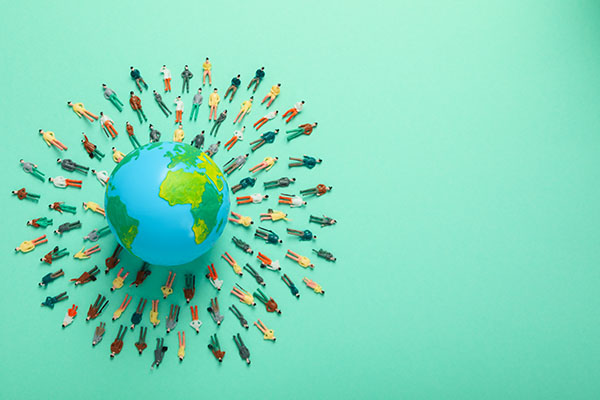
You have to be it as opposed to fake it.
Doing the work on yourself becomes not only a gift to yourself but also becomes a gift to everybody you come in contact with in your life and this becomes an important thing. You don’t have to be the Dalai Lama. You can be your own little Dalai Lama, where people are excited or happy to see you because they know you’ll be present with them. They know that your presence will lift the energy of a place. To gift that alone is a beautiful way to live your life.
I don’t want to bring negative energy to this show now, but we have to sadly wrap up. I’m going to ask three very quick questions. First, you’ve been to so many places. If you could go anywhere, at any time period in the world, which time and place would you go to?
I would love to go to Tibet before the Chinese invaded it. When Tibet was completely closed off would be extraordinary.
What time period was that?
That was before 1959. If you’ve seen Seven Years in Tibet, it’s a perfect example. No westerners were allowed in. It was a completely closed-off country that was living under Buddhist philosophy. It would’ve been an extraordinary place to be part of.
In the purest form. You’ve done a lot and going to be doing a lot. What’s on the bucket list of still something that the universe has in store for you, ideally?
I want to do the train ride from Russia down to Mongolia. I can’t, off the top of my head, think what the name of it is, but there’s a train trip from Russia down to Mongolia, and I want to do this.
What’s exciting about that?
I’ve never been to Russia and have not been to Mongolia, and I want to go. On that train trip, you’re going to meet extraordinary people. You’re going to be forced into connection. You are going to be out of your comfort zone every step of the way. I love being pushed out of my comfort zone. It feels like it would be a journey that would be exciting, stimulating, connected, and make me uncomfortable. All things that would make it unbelievable and unforgettable.
The last question, you’ve done so much and helped so many people. What do you most want to be remembered by in the many years hopefully that you have left?
For being someone who did their best in the world. That’s it. It doesn’t matter how I do that, whether that’s in my work, how I love people, or it’s the way that I try to be kind and thoughtful. I did my best and I feel confident. If I die tomorrow, I feel I’ve nailed it, but to continue doing that is what matters.
I was personally inspired by this. I want to talk afterward about going to a retreat in Costa Rica. You’ve sold me already. What’s the best way to reach you?
I have a little quiz so we can check your happiness levels. It’s called HowHappyAmI.com. Come and do the quiz and check it out. Connect and write to me or whatever. Even though I’ve got thousands of students, I’m very present in the work that I do, so I’m not very difficult to get hold of. Write to me and tell me what it is that you want, and where your obstacles are, and I’ll see how I can help you.
Thank you, Monique. I am hopeful to do the quiz after this. I’m a pretty happy guy, but we’ll find out how happy I am. I’ll conclude by saying I’m very happy that we had the opportunity to connect together. Thank you again.
Me too. Thank you, David.
—
Thanks for reading. Normally, I give 2, 3, 4, or 5 different areas of things that I could take away from an episode, but I can’t do it. It was too many amazing takeaways. What you should do is re-read. That’s my takeaway. Re-read because she is so extraordinary. I’m on a flight to Costa Rica to spend time with her because she’s that amazing. If you enjoy this episode, then please subscribe, leave a review, and remember, let’s keep connected because life is better together.
I have something important to share. Check out my new book, Decide & Conquer, to get to know my story at Meetup. The hardest thing about community leadership is making tough decisions with high stakes. They were never higher than when Meetup was owned and sold by WeWork. In my new book, Decide & Conquer, I’ll walk you through a counterintuitive framework for decision-making and the epic journey of Meetup’s surprising survival. Good leaders deliberate. Great leaders decide. Order my book by visiting, DecideAndConquerBook.com or anywhere books are sold. You’ll like it
Important Links
About Monique Rhodes
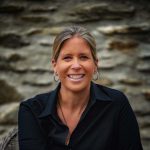 Sowing The Seeds Of Joy With Monique RhodesMonique Rhodes was adopted into a difficult situation in New Zealand. By her early teens she was quite depressed, and at 19 years old hit rock bottom when she attempted to take her own life. Since then, she’s been on a journey of resilience and self-discovery that has utterly transformed her experience as a human being on Earth. From a four-year motorcycle trip through India, to studying with the Dalai Lama, and moving to Costa Rica without a single prior connection, Monique’s path continues to unfold in a way that values firsthand experience, novelty, intentionality, and audacity. She and David sit down to discuss the revolutionary role of meditation in Monique’s life, friendship and spirituality crossovers, how world travel can be a practice of gratitude, and much more.
Sowing The Seeds Of Joy With Monique RhodesMonique Rhodes was adopted into a difficult situation in New Zealand. By her early teens she was quite depressed, and at 19 years old hit rock bottom when she attempted to take her own life. Since then, she’s been on a journey of resilience and self-discovery that has utterly transformed her experience as a human being on Earth. From a four-year motorcycle trip through India, to studying with the Dalai Lama, and moving to Costa Rica without a single prior connection, Monique’s path continues to unfold in a way that values firsthand experience, novelty, intentionality, and audacity. She and David sit down to discuss the revolutionary role of meditation in Monique’s life, friendship and spirituality crossovers, how world travel can be a practice of gratitude, and much more.
Last modified on November 28, 2022

